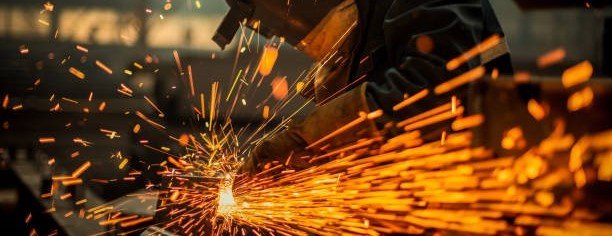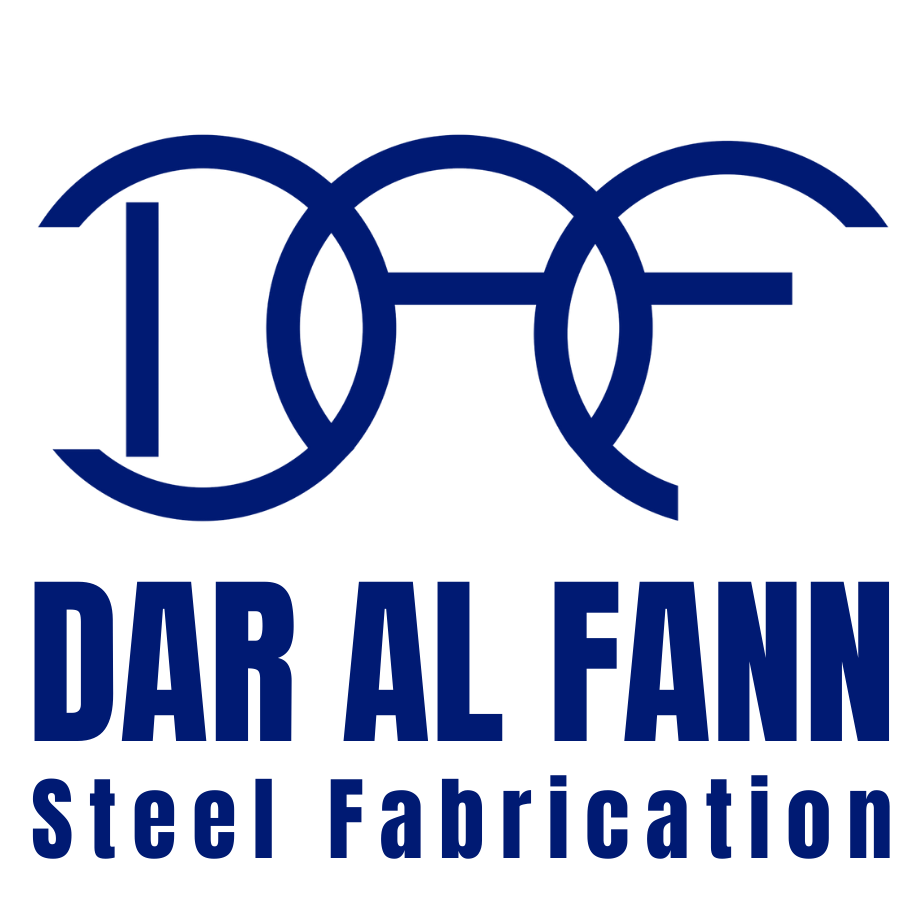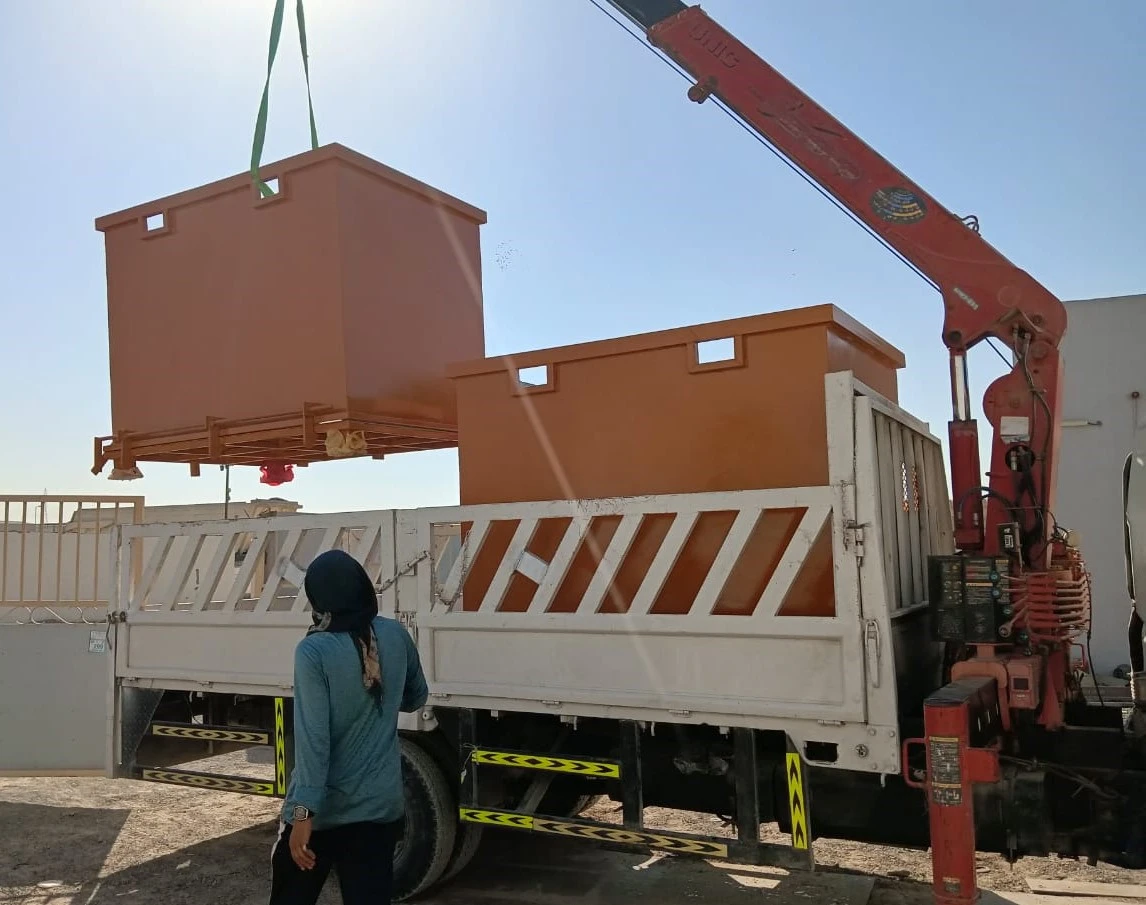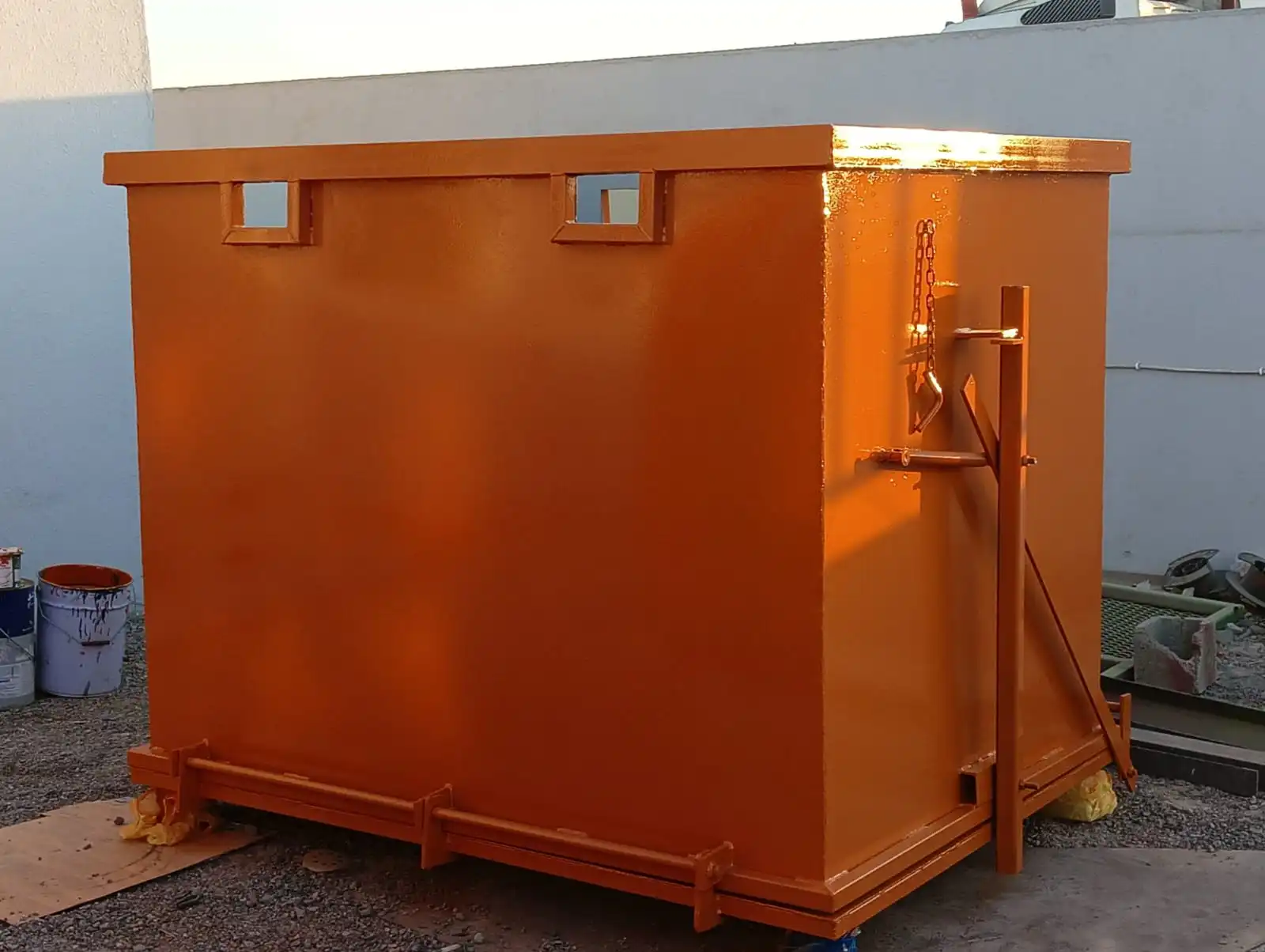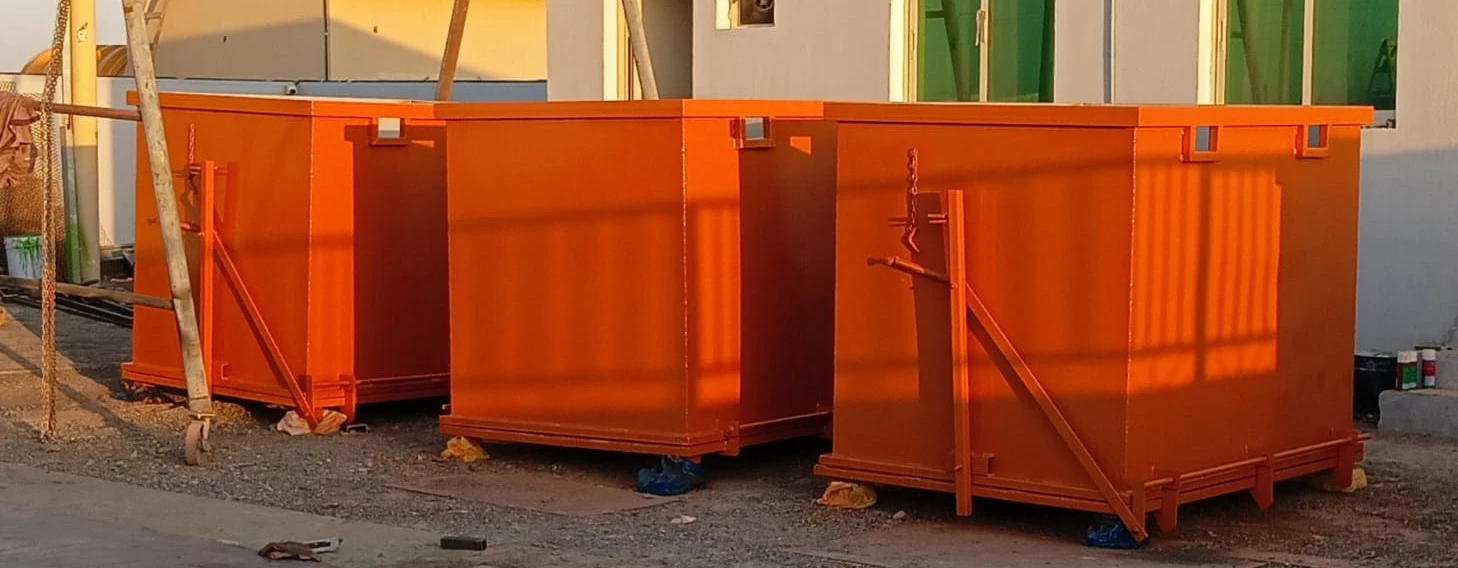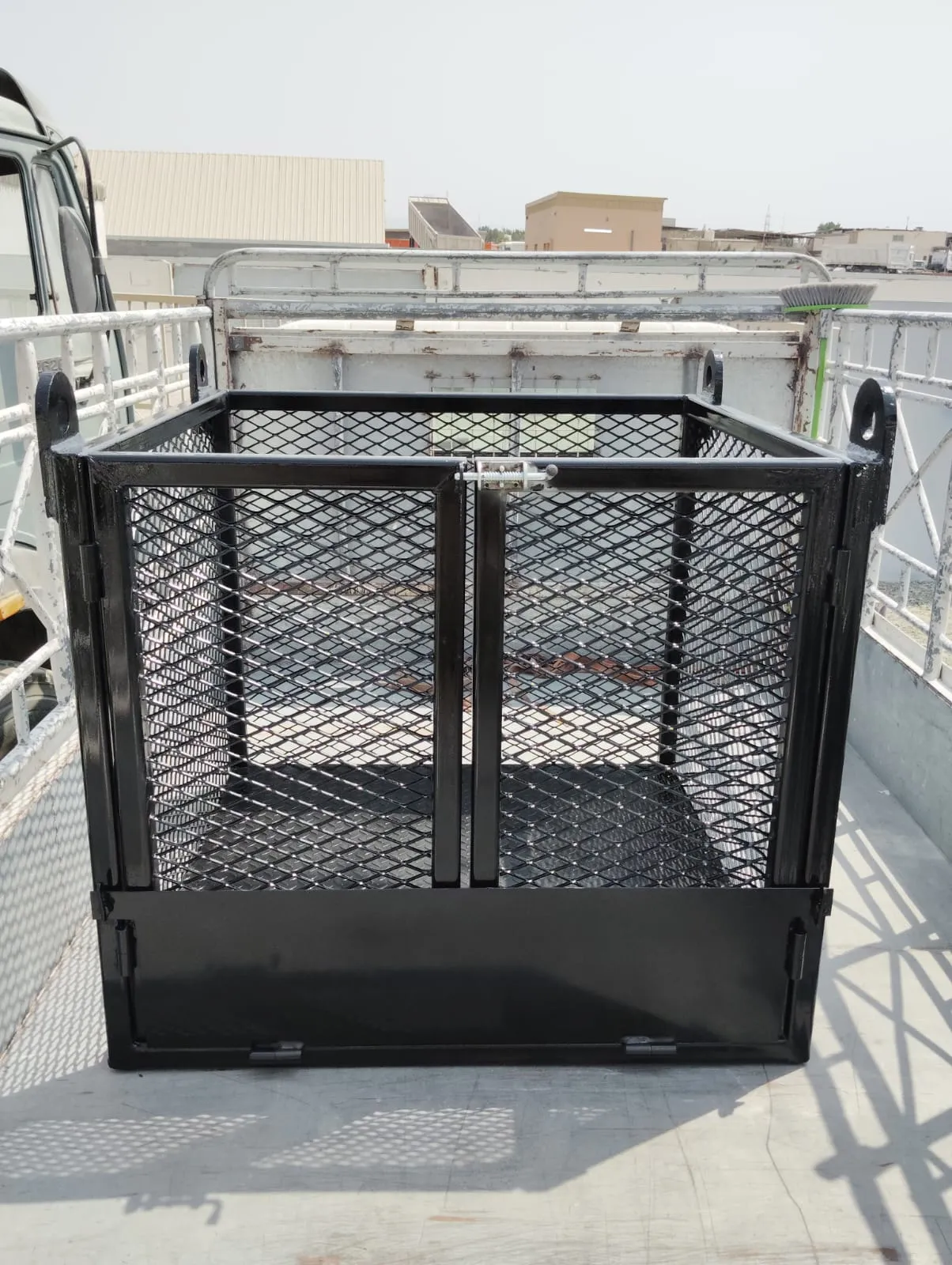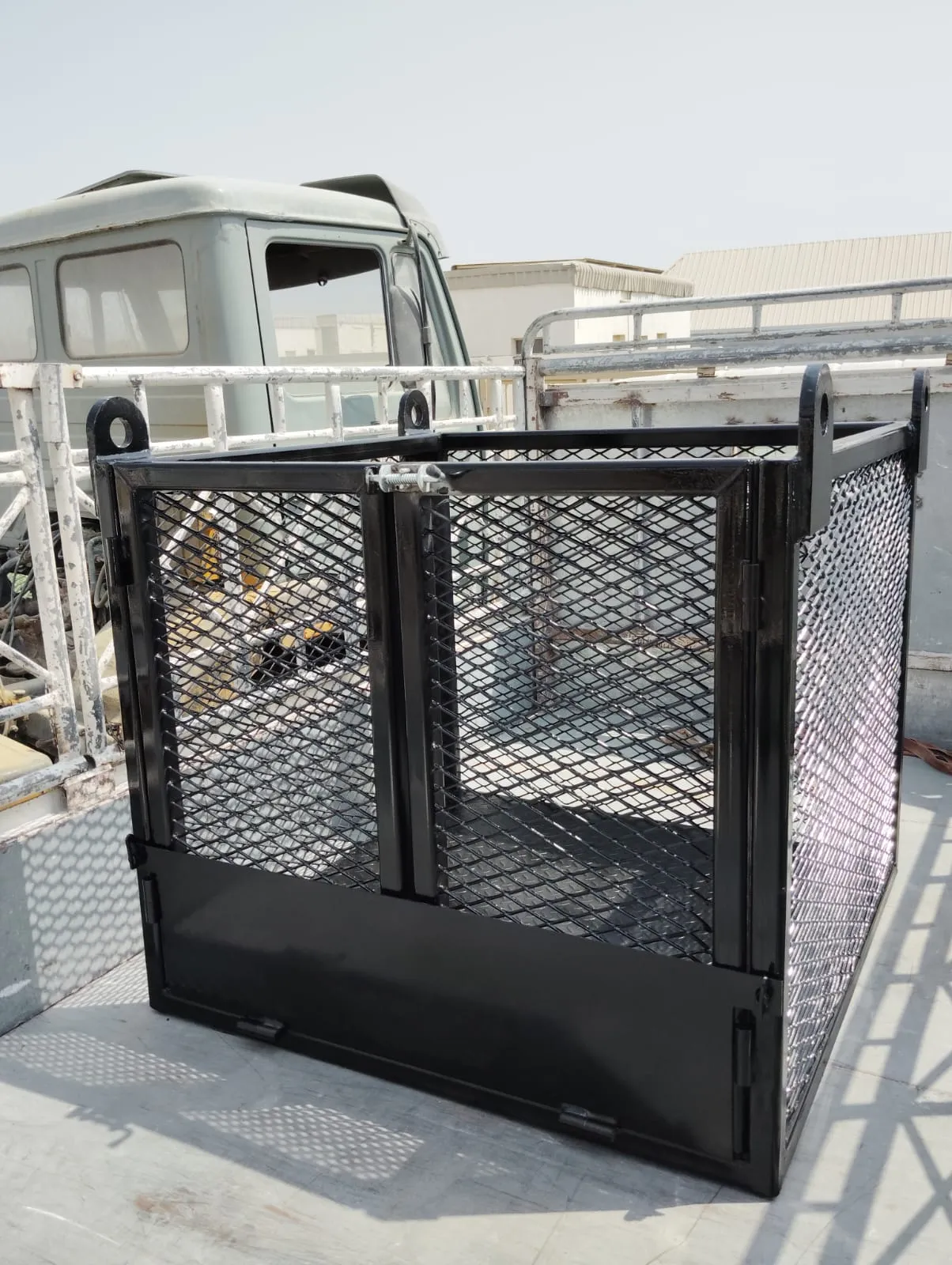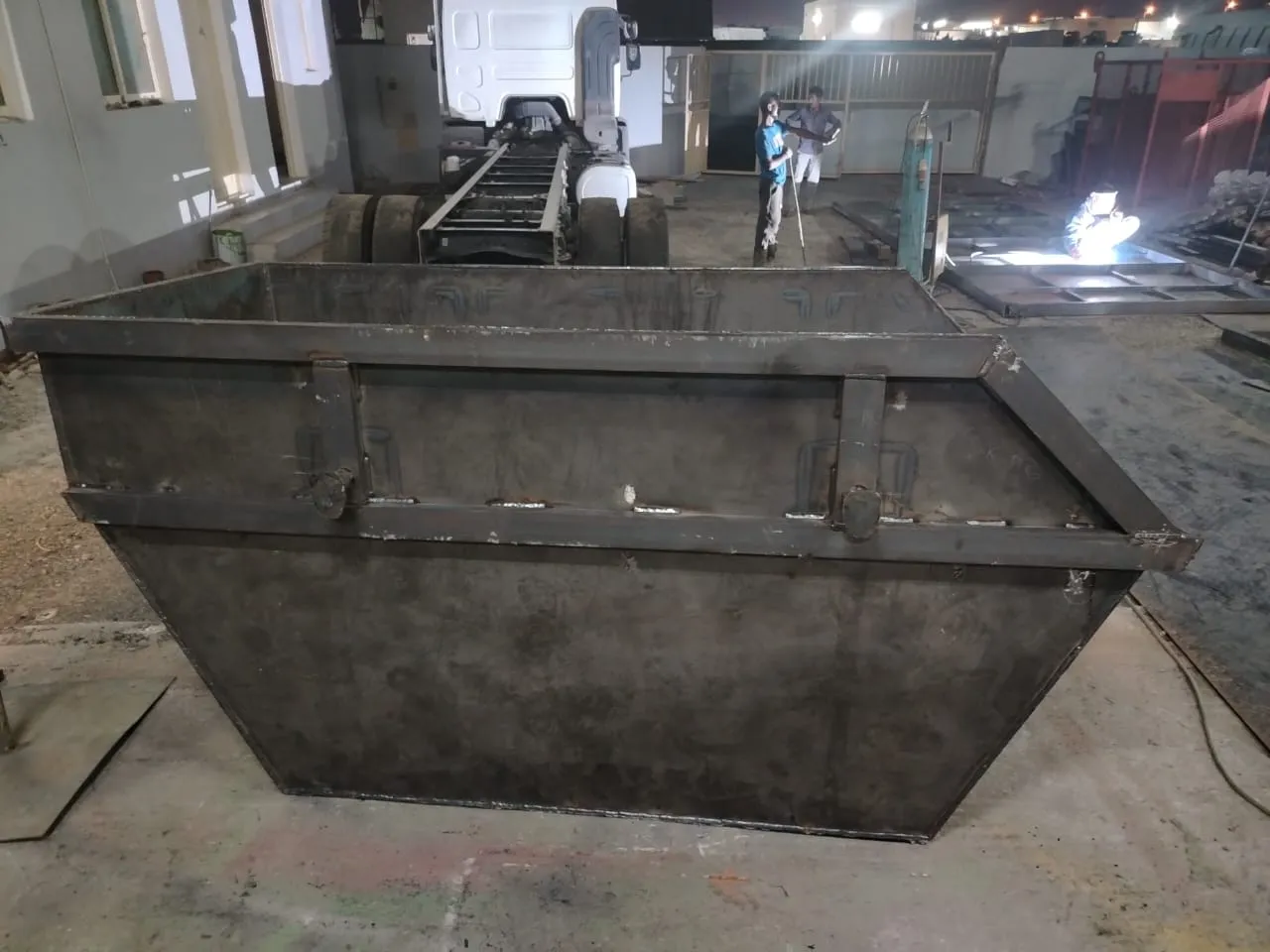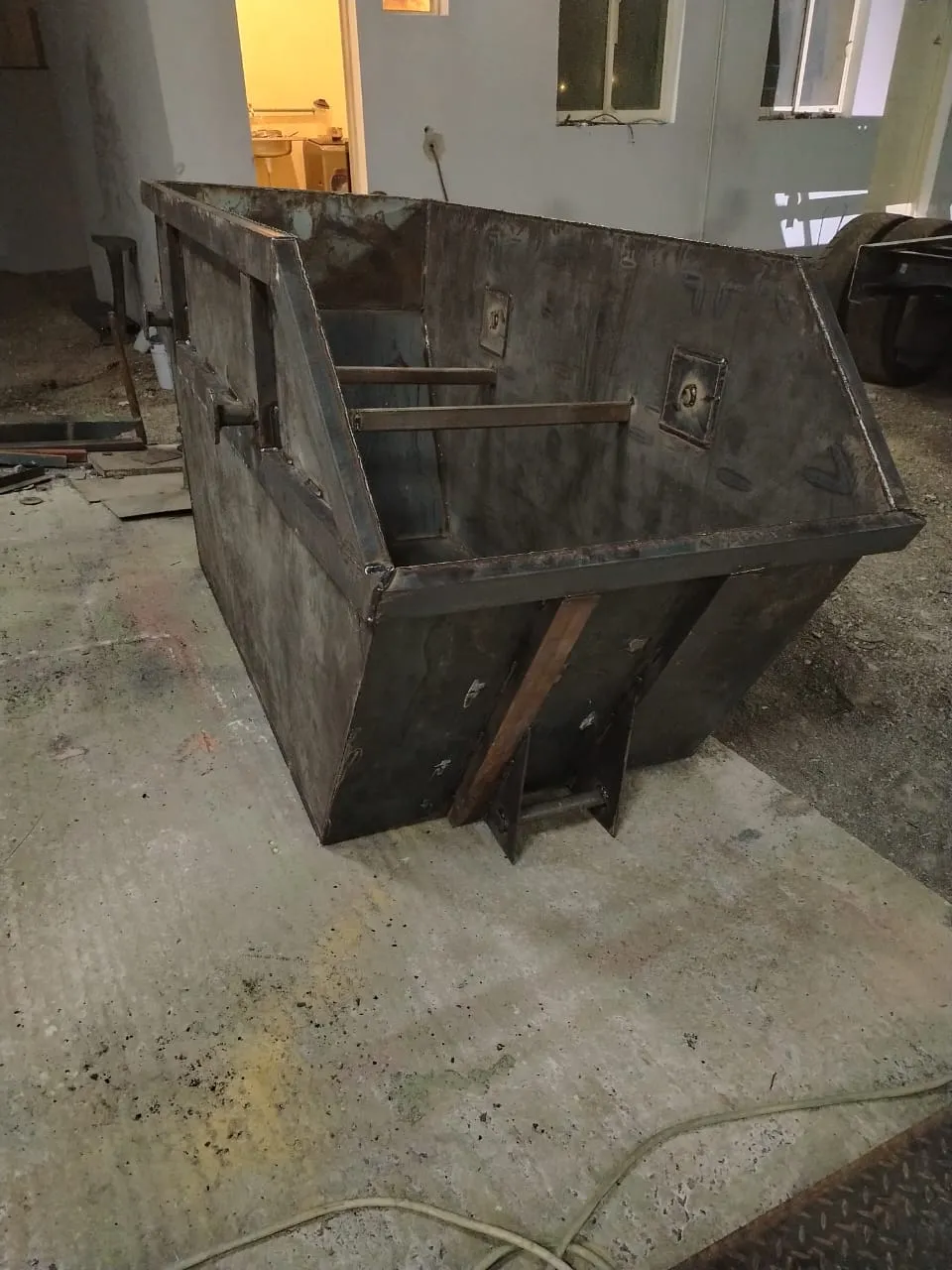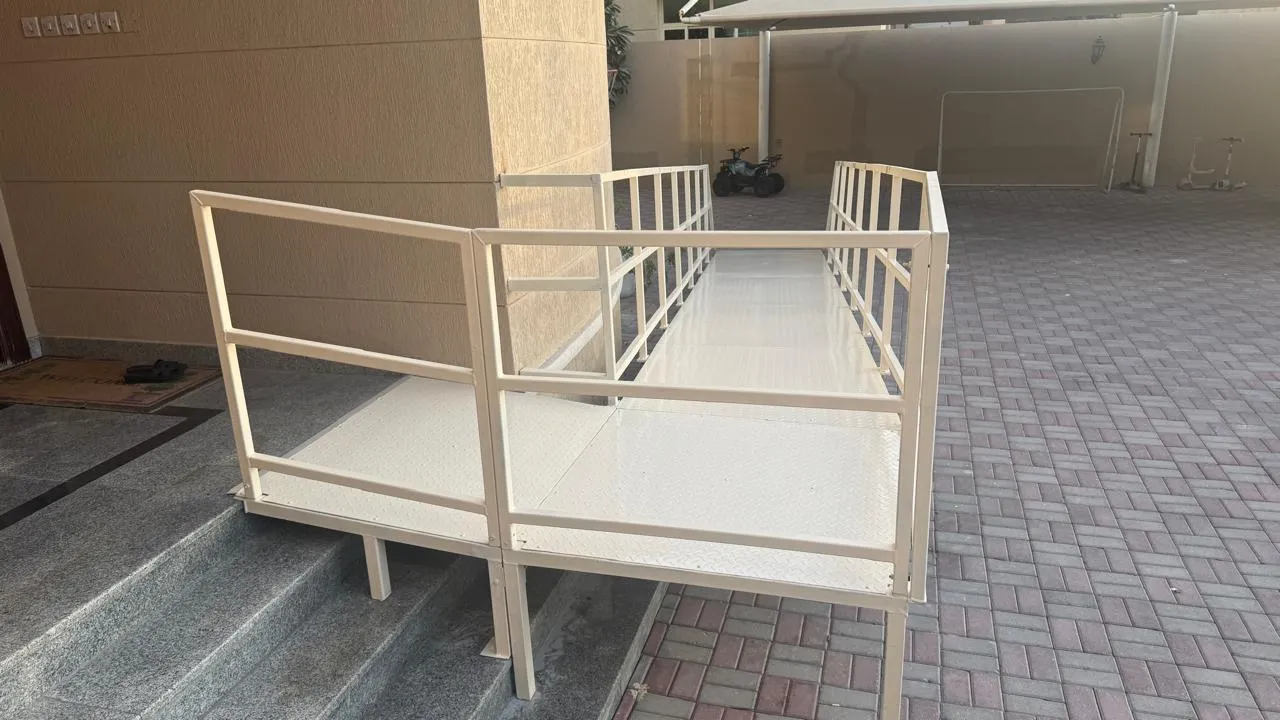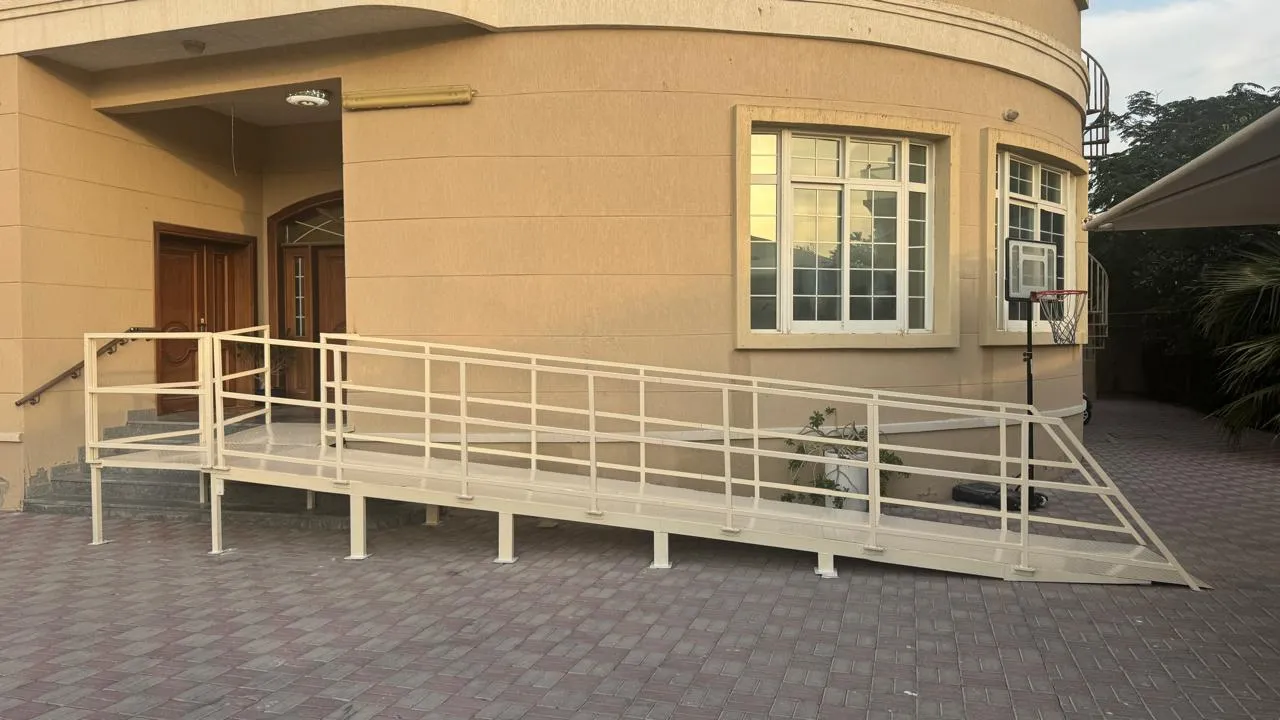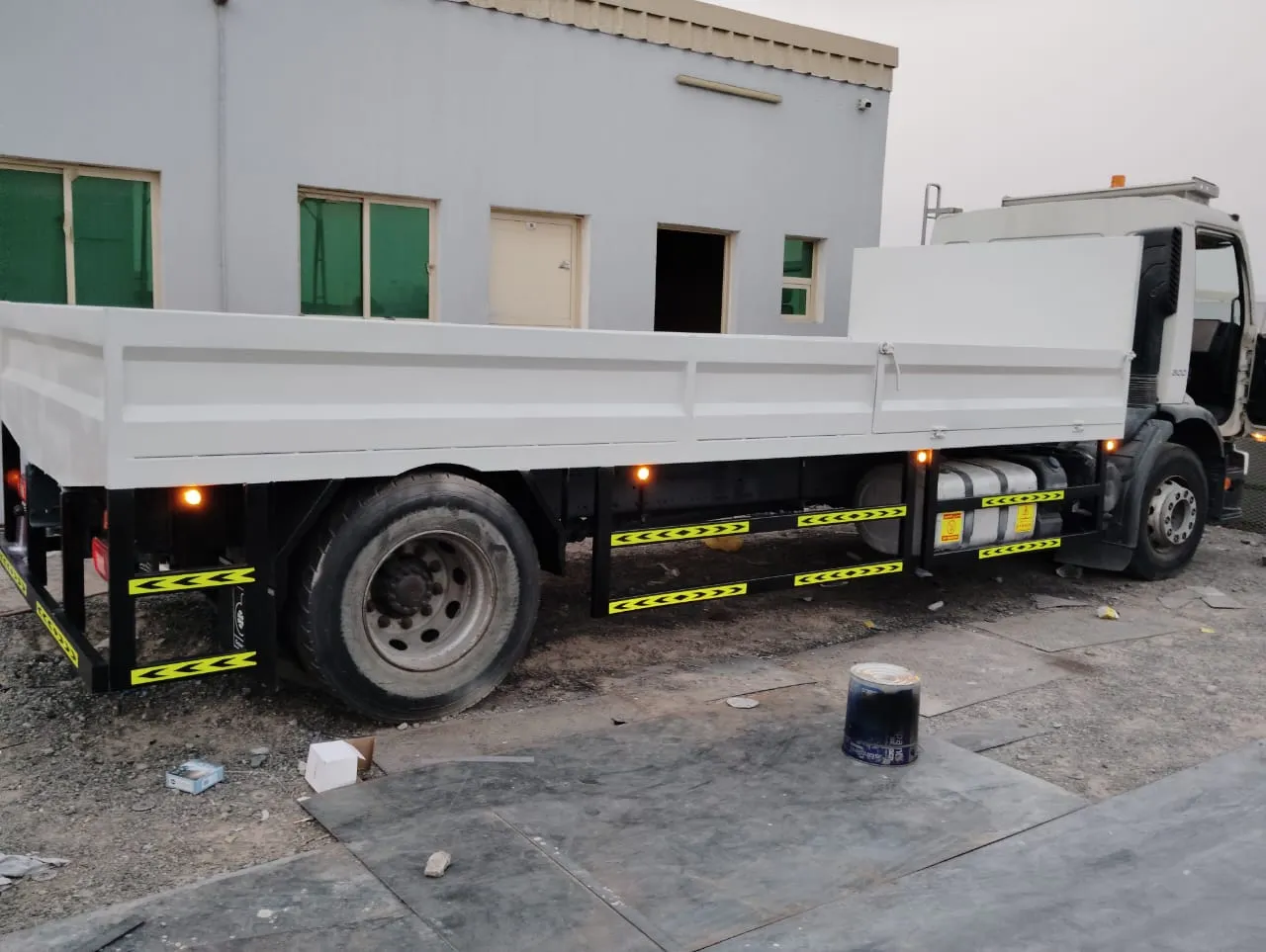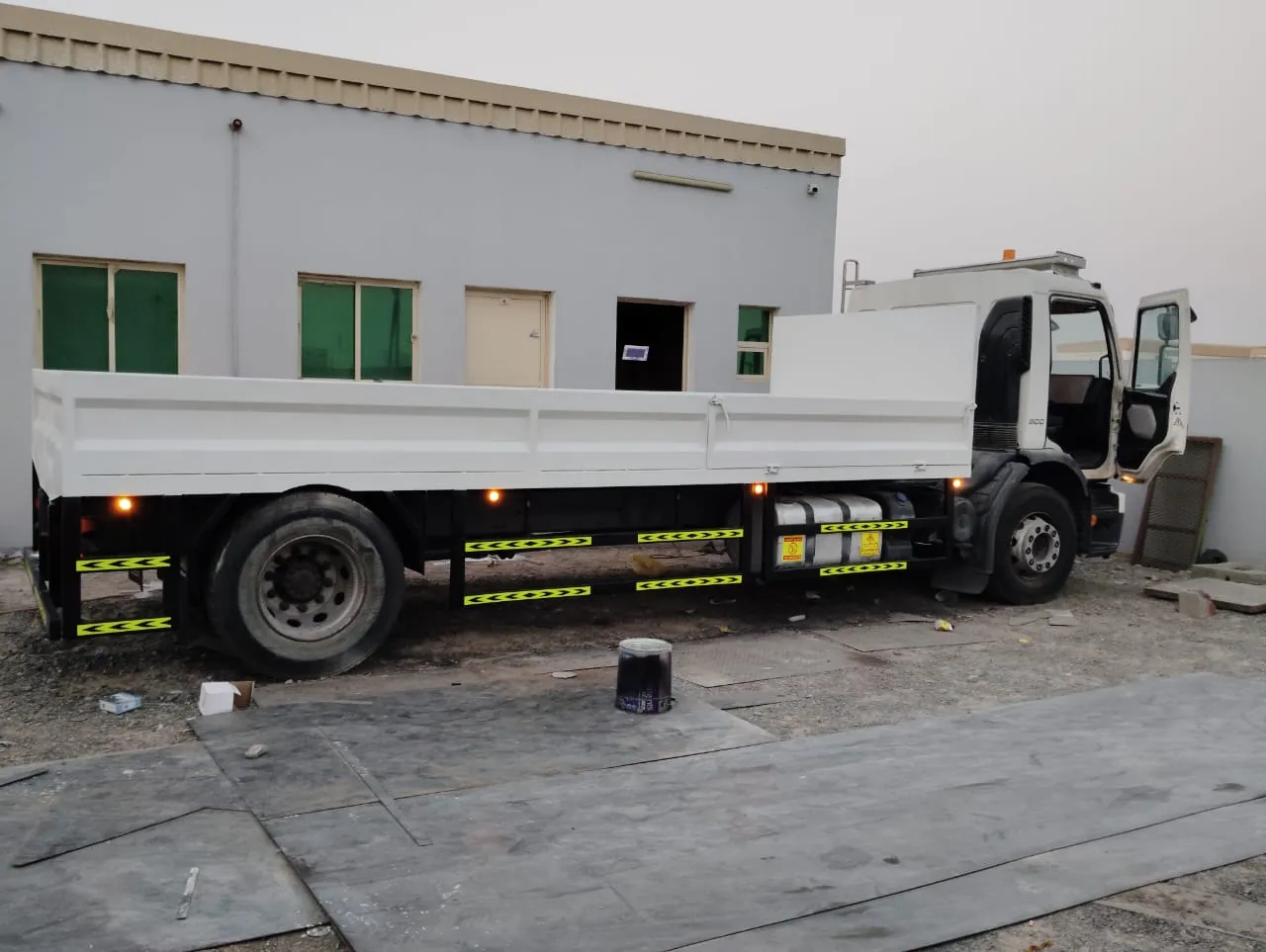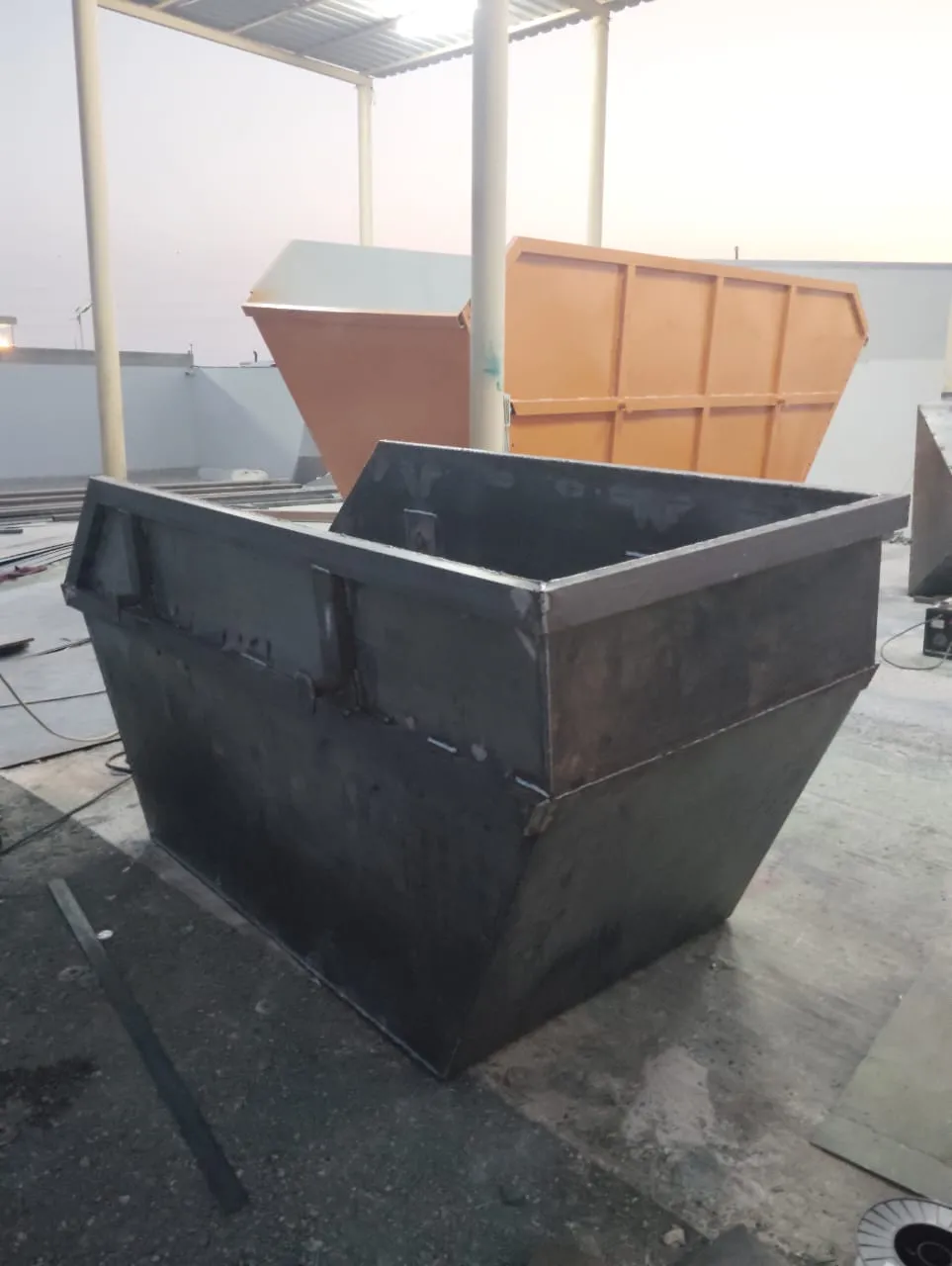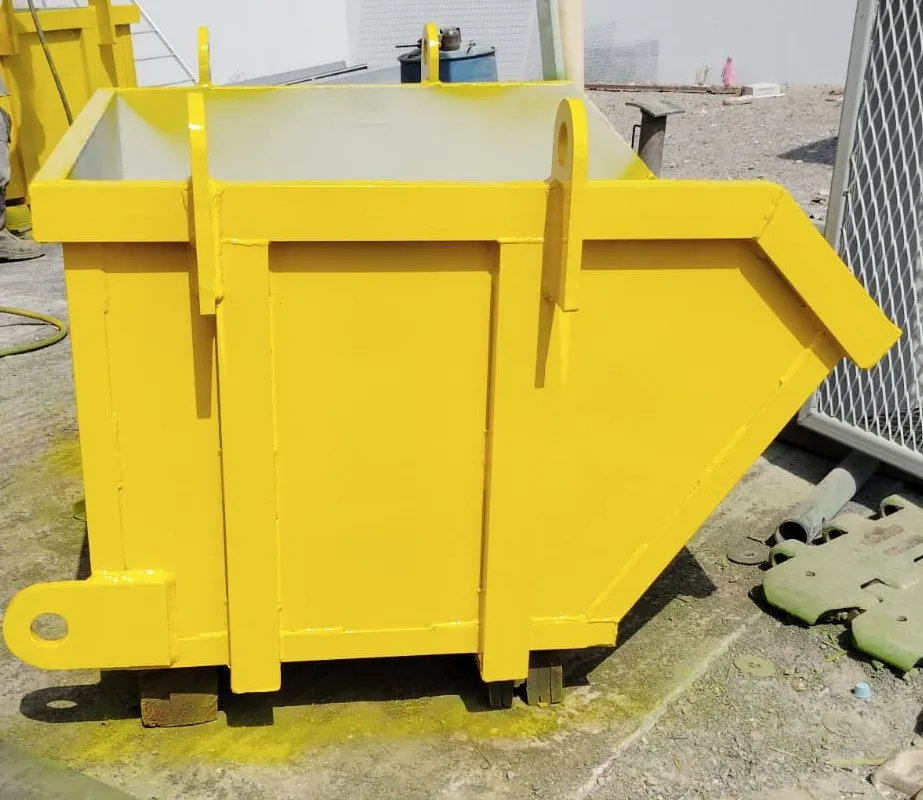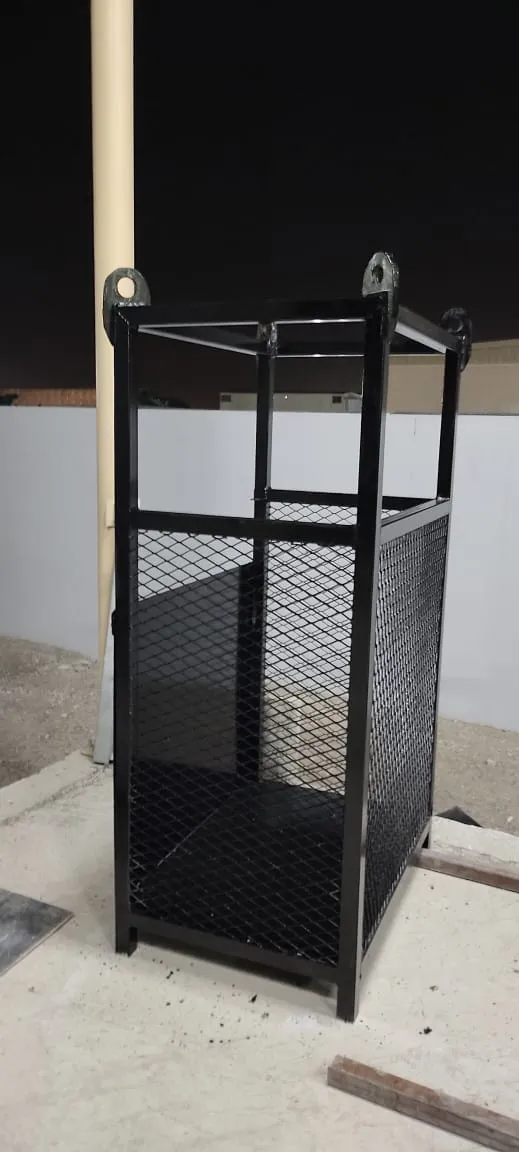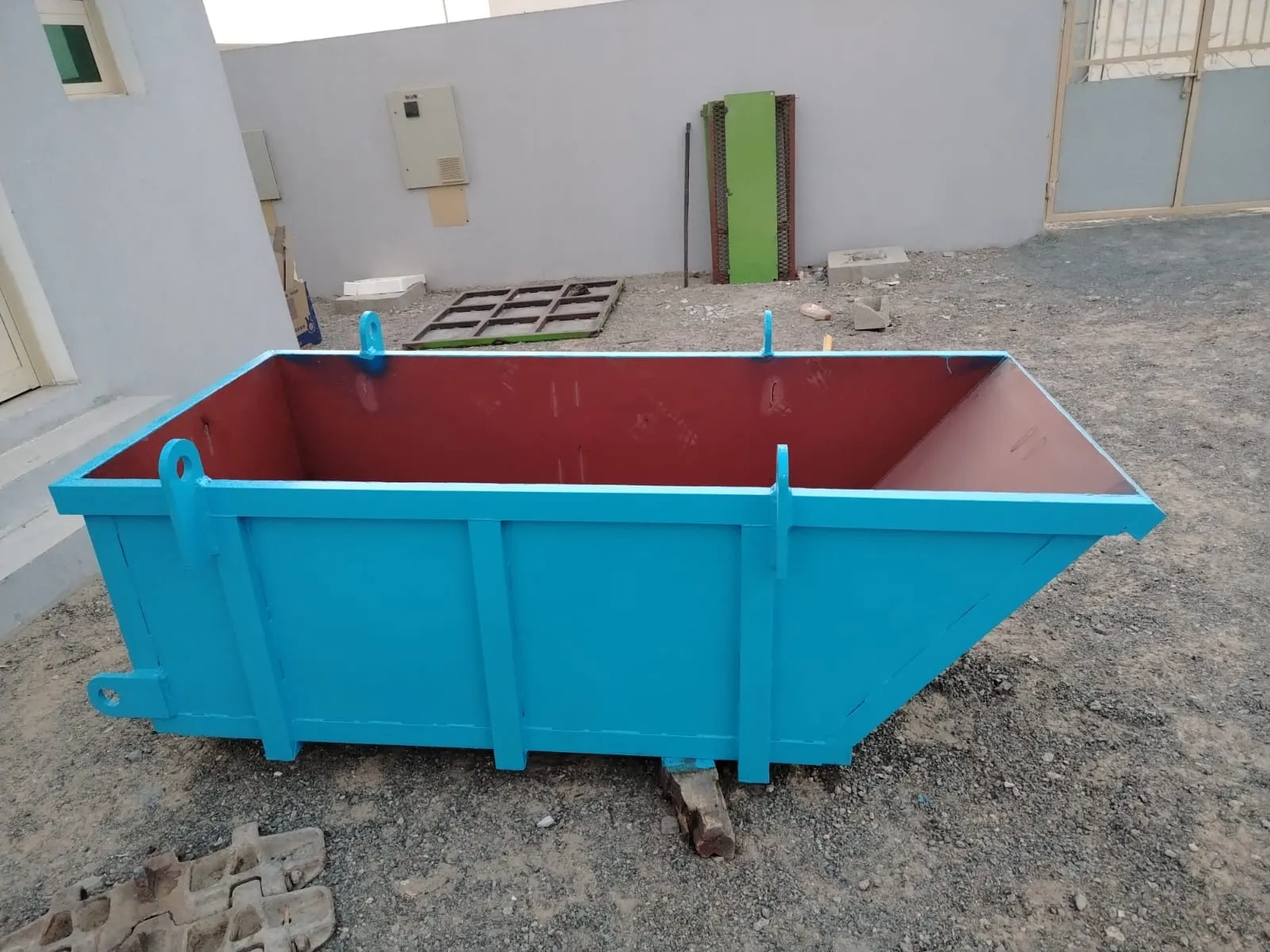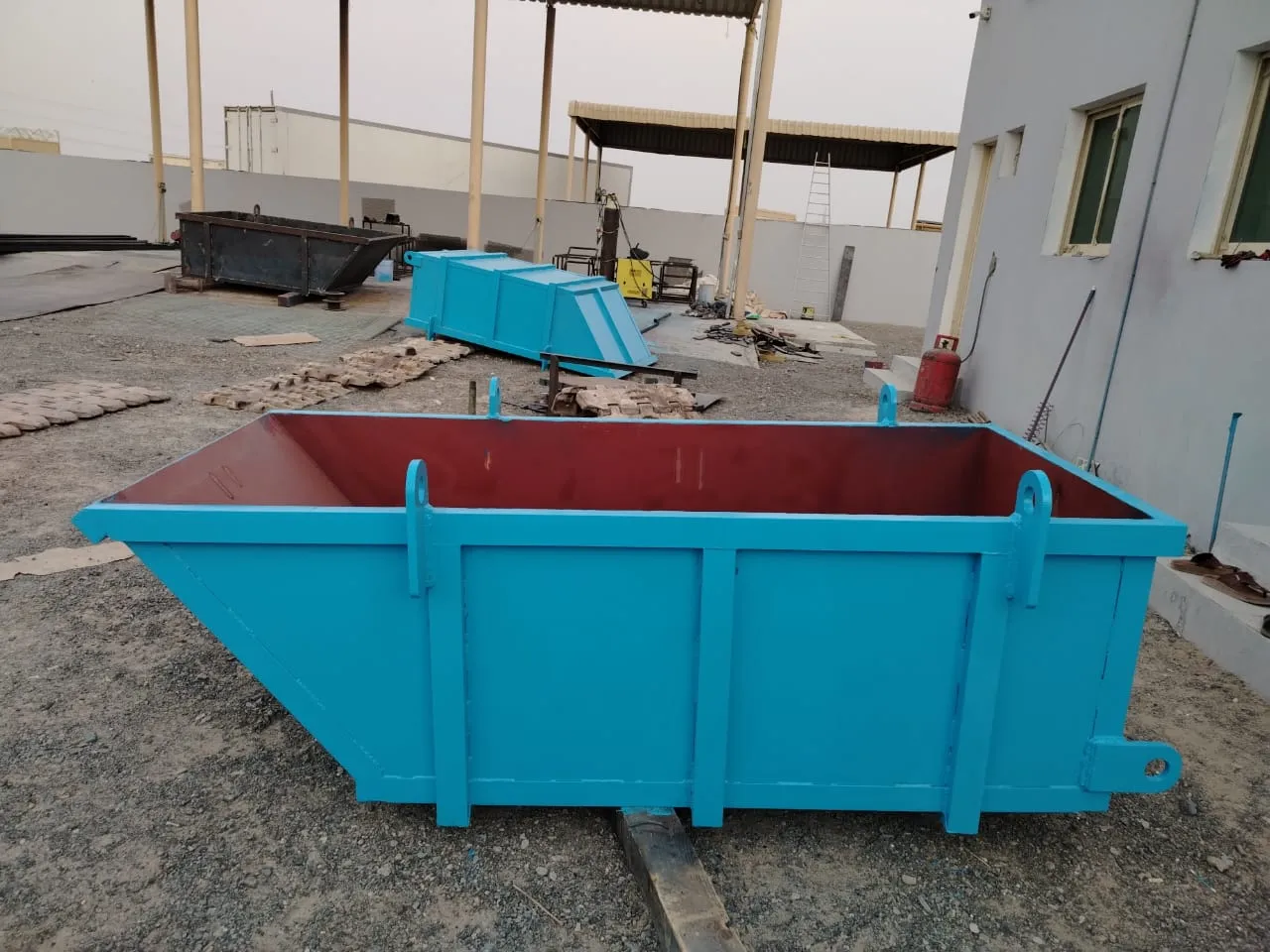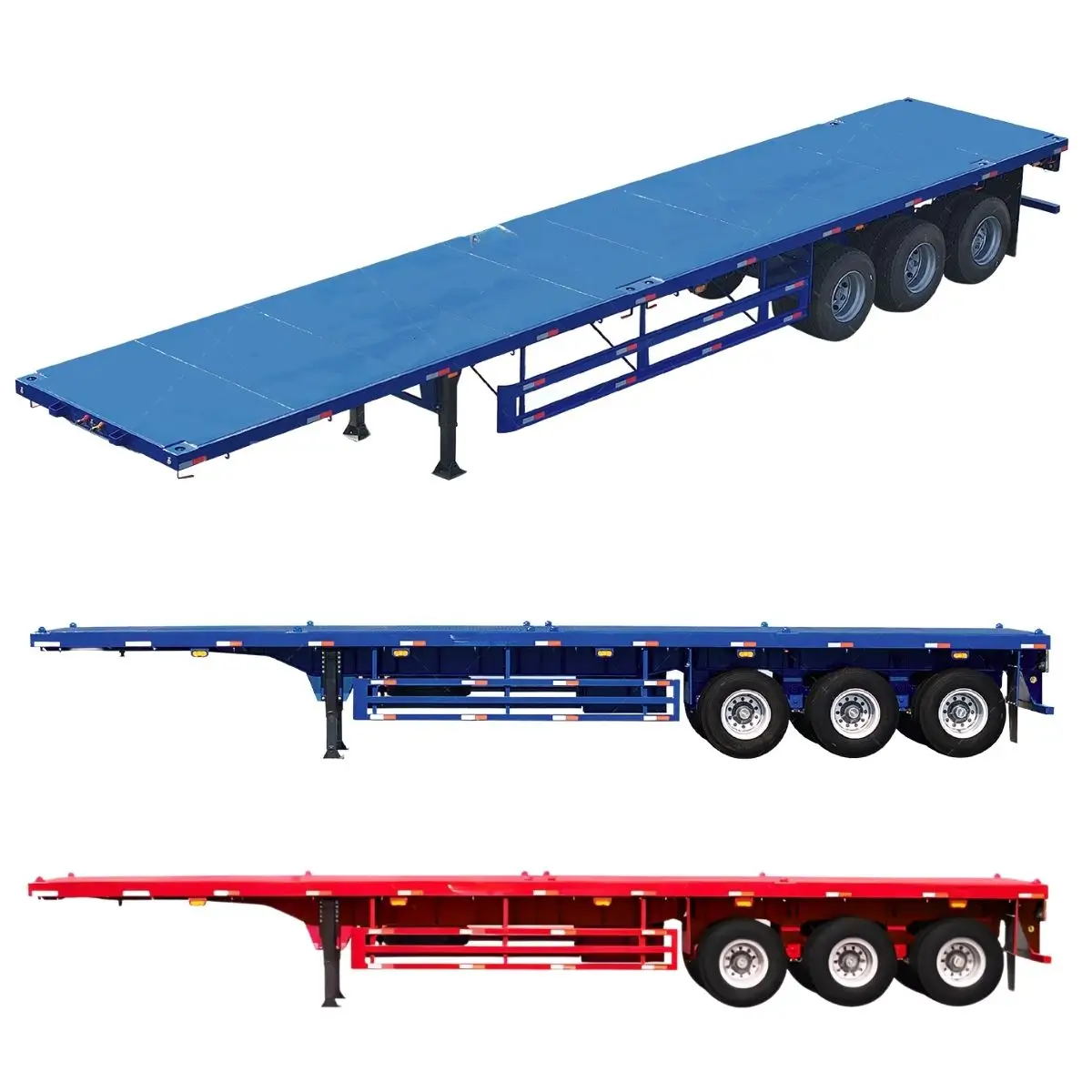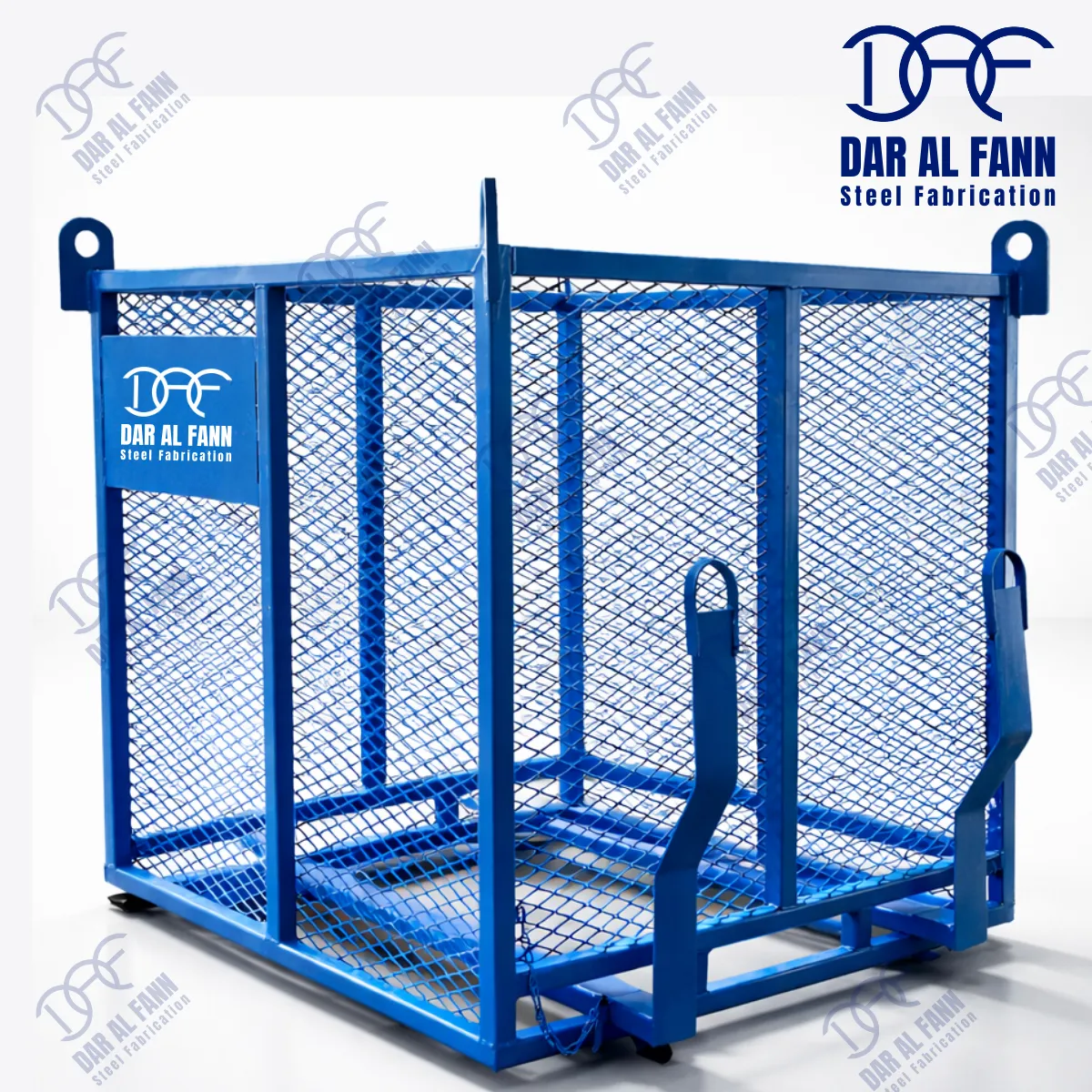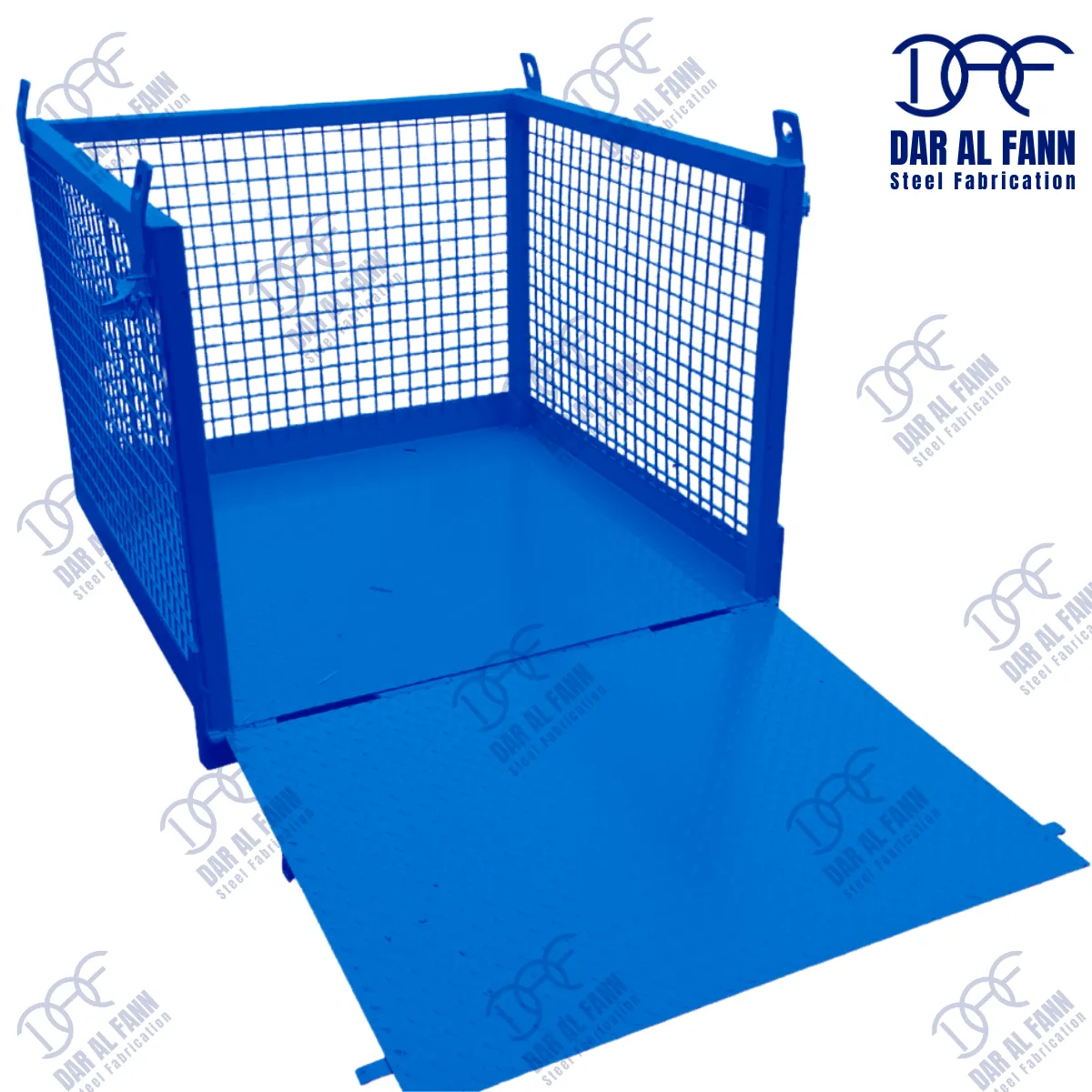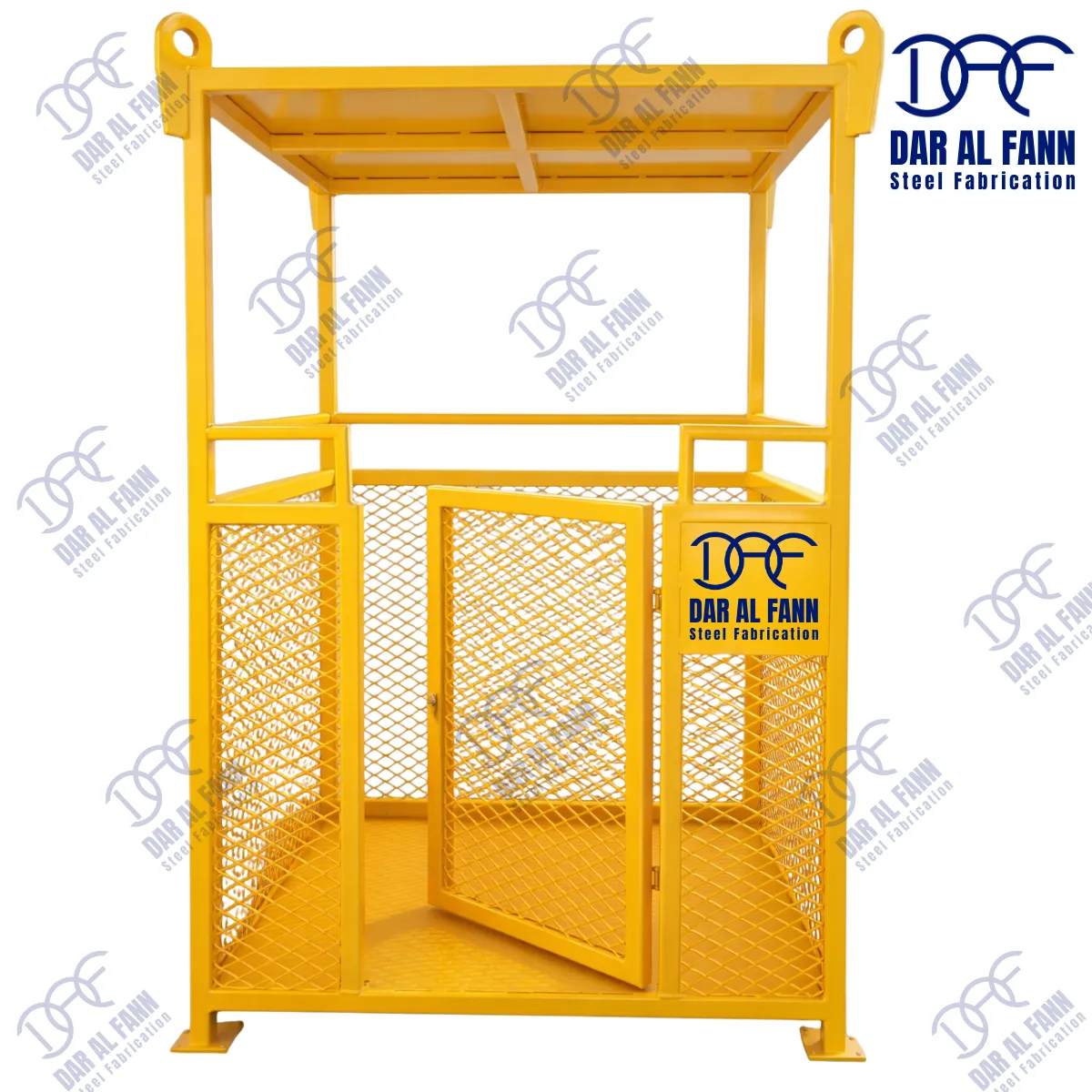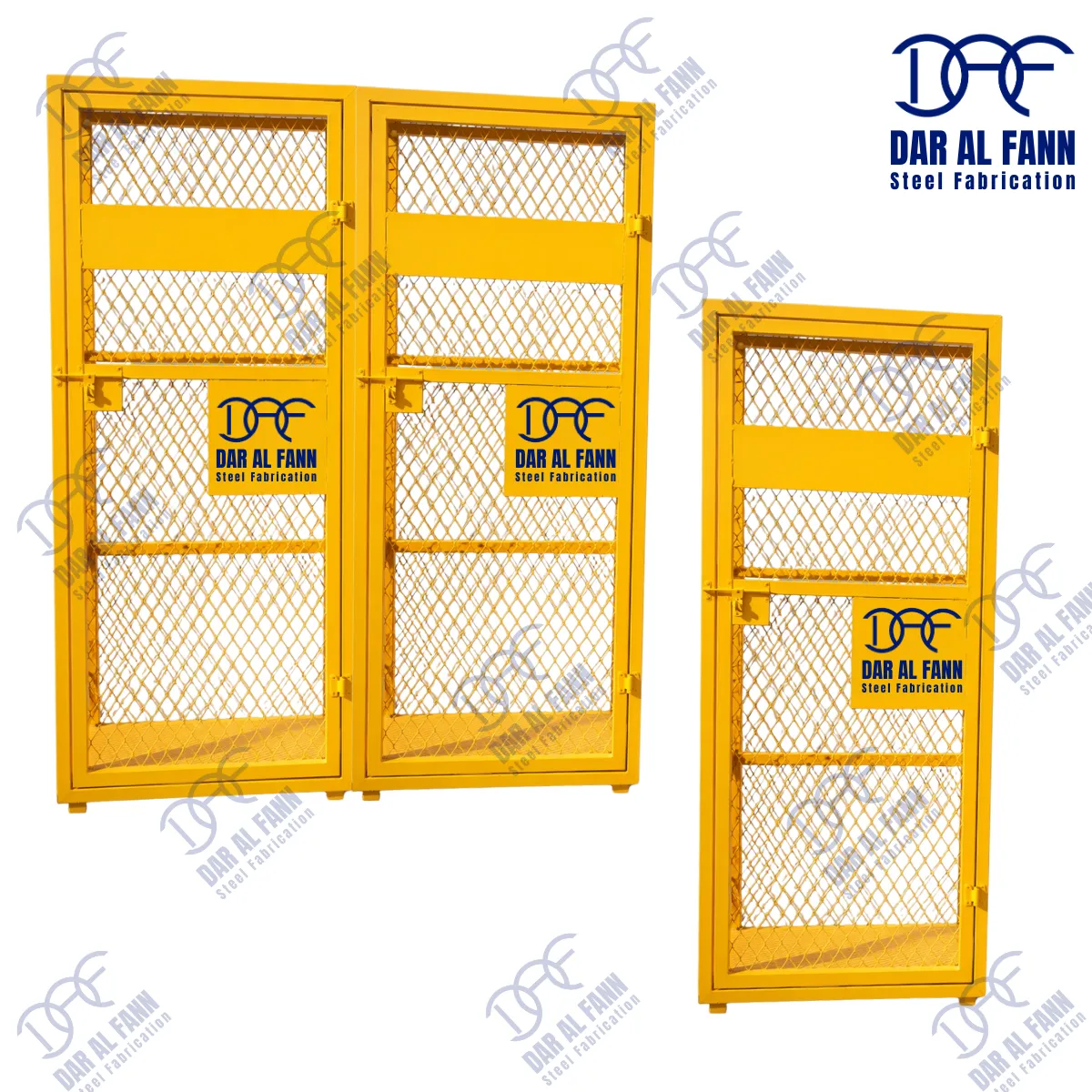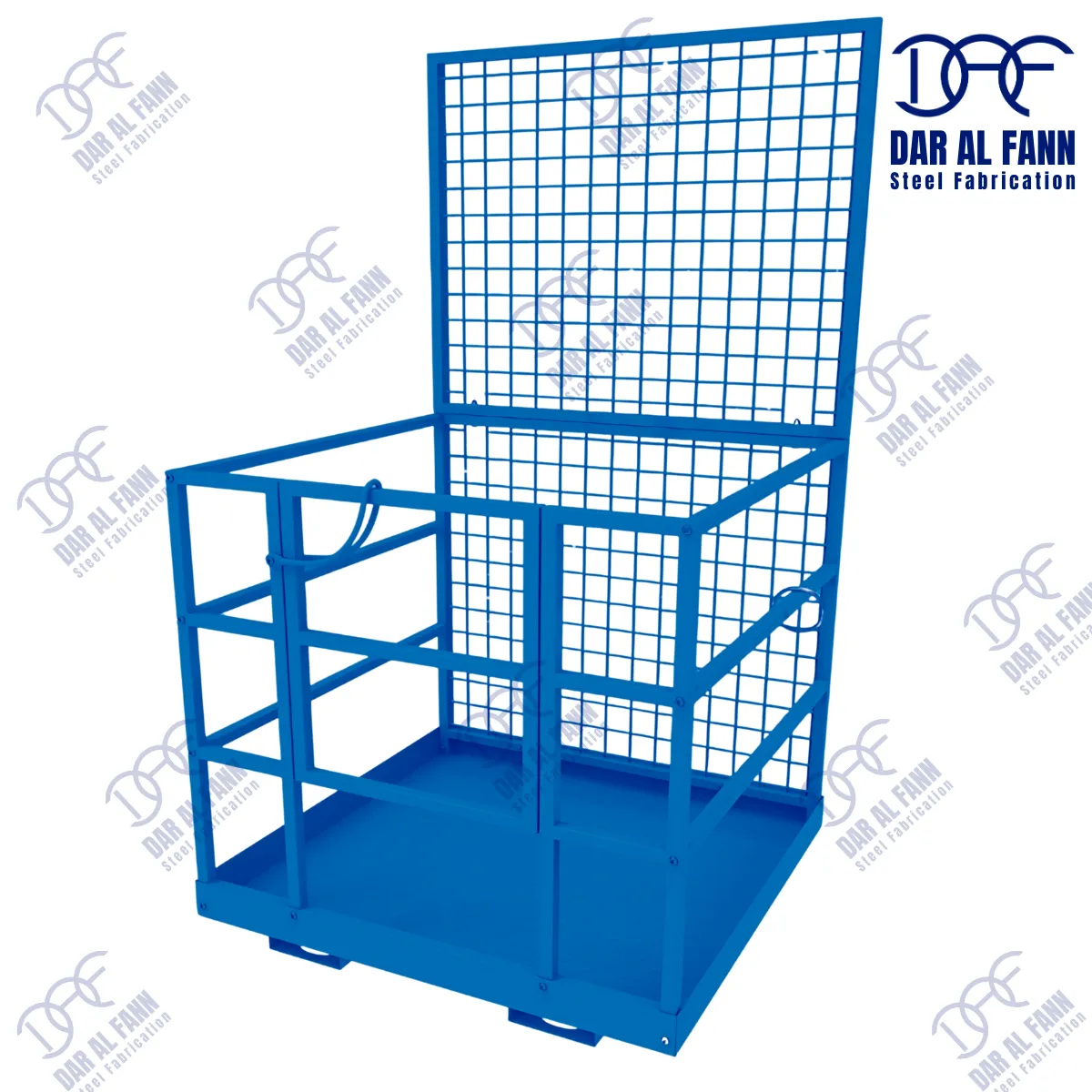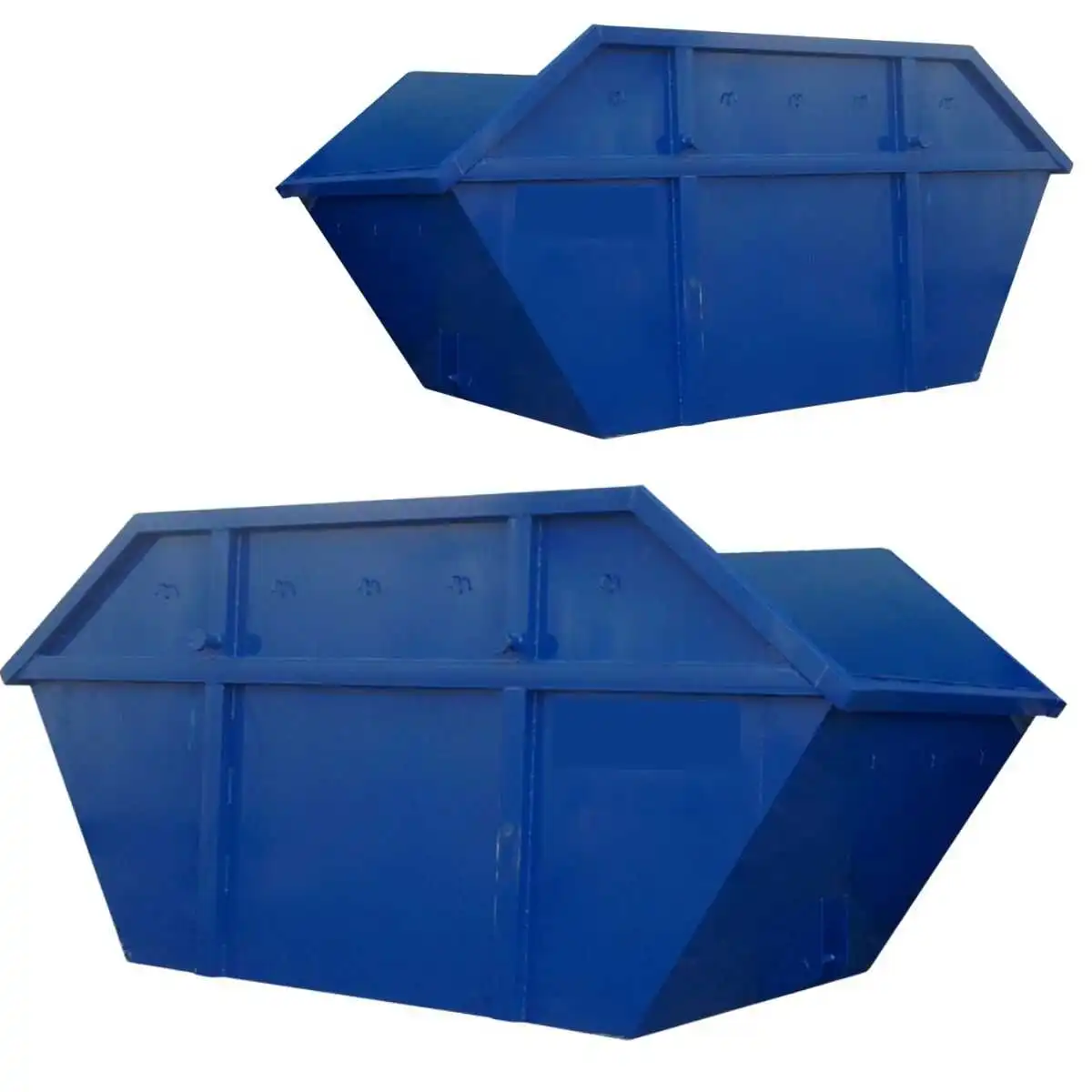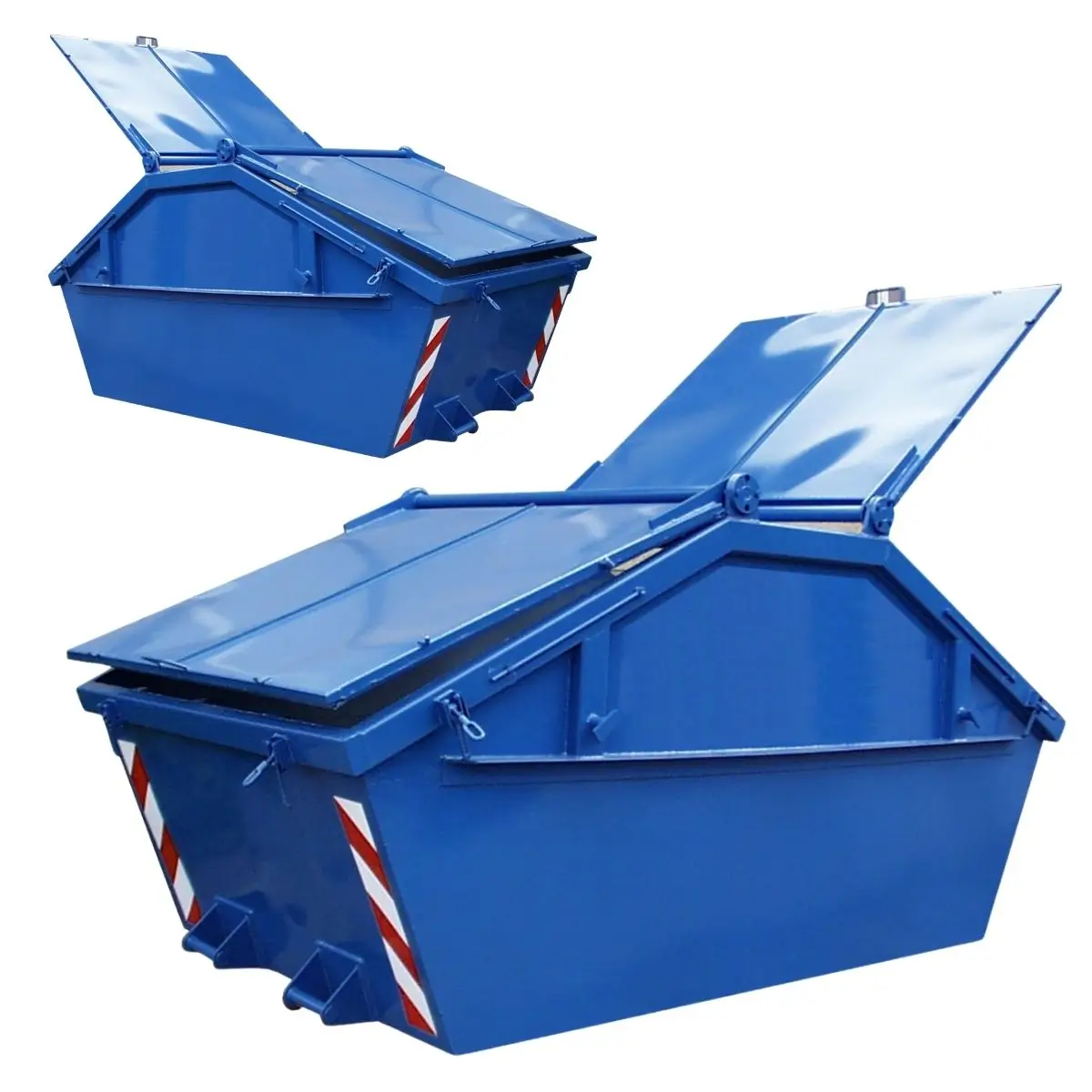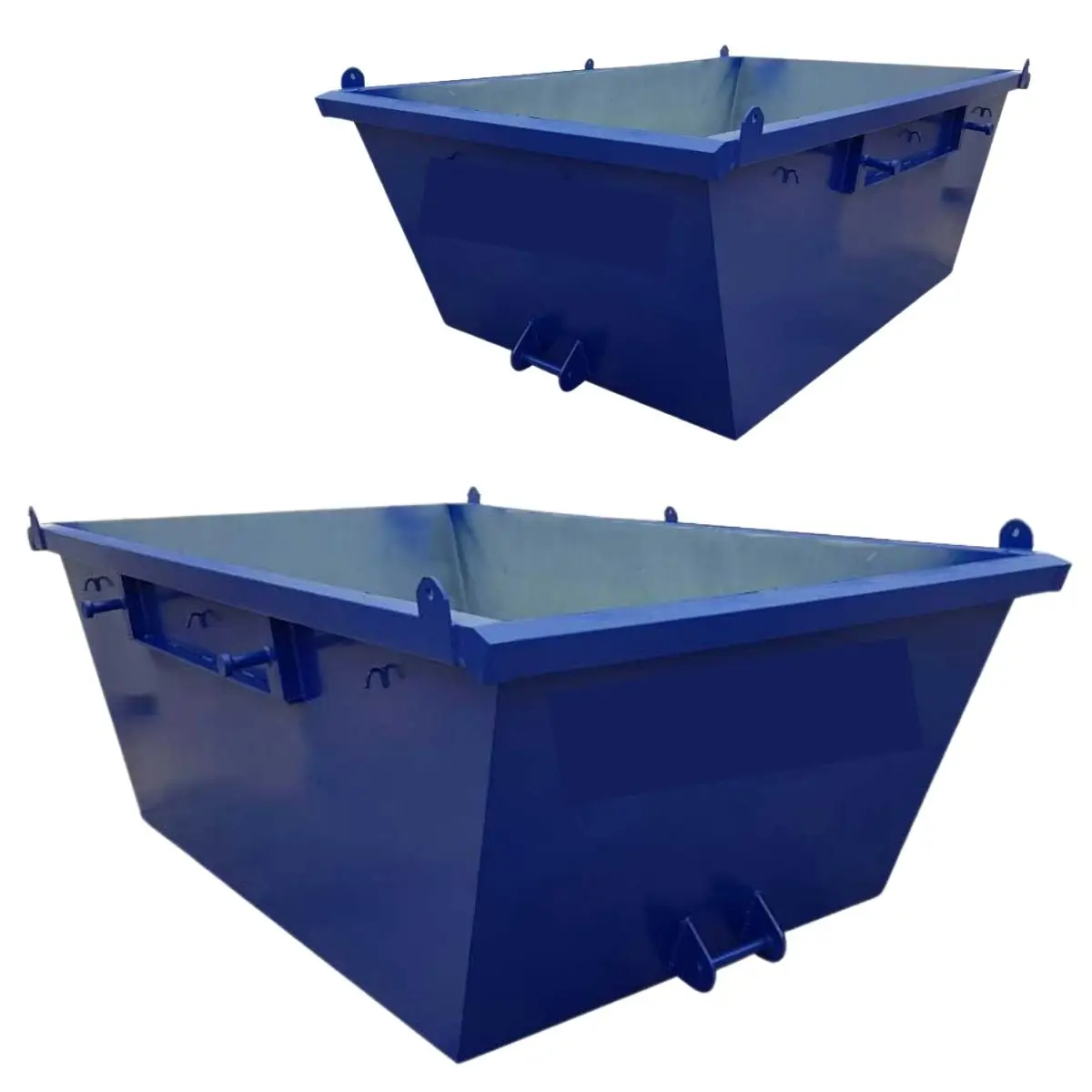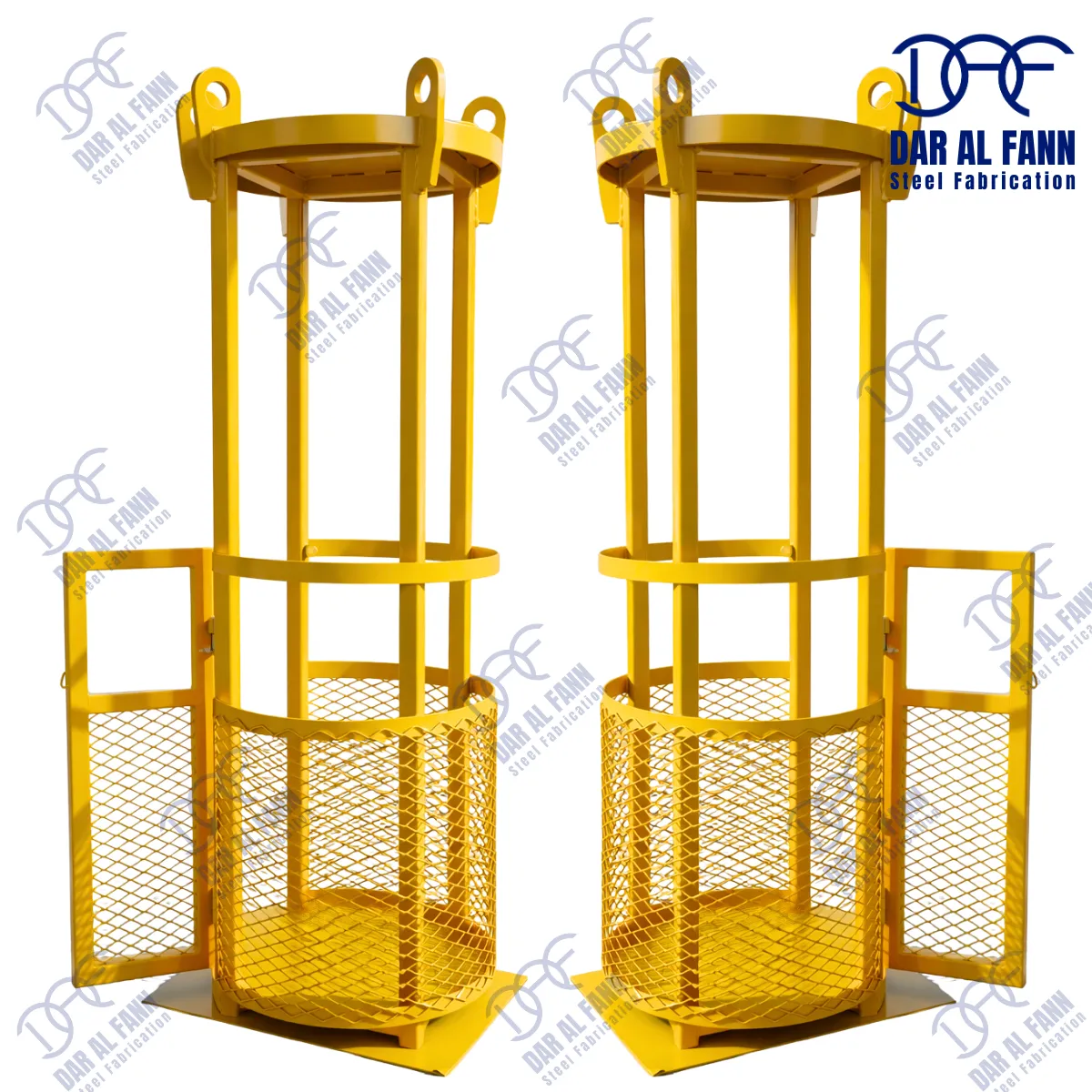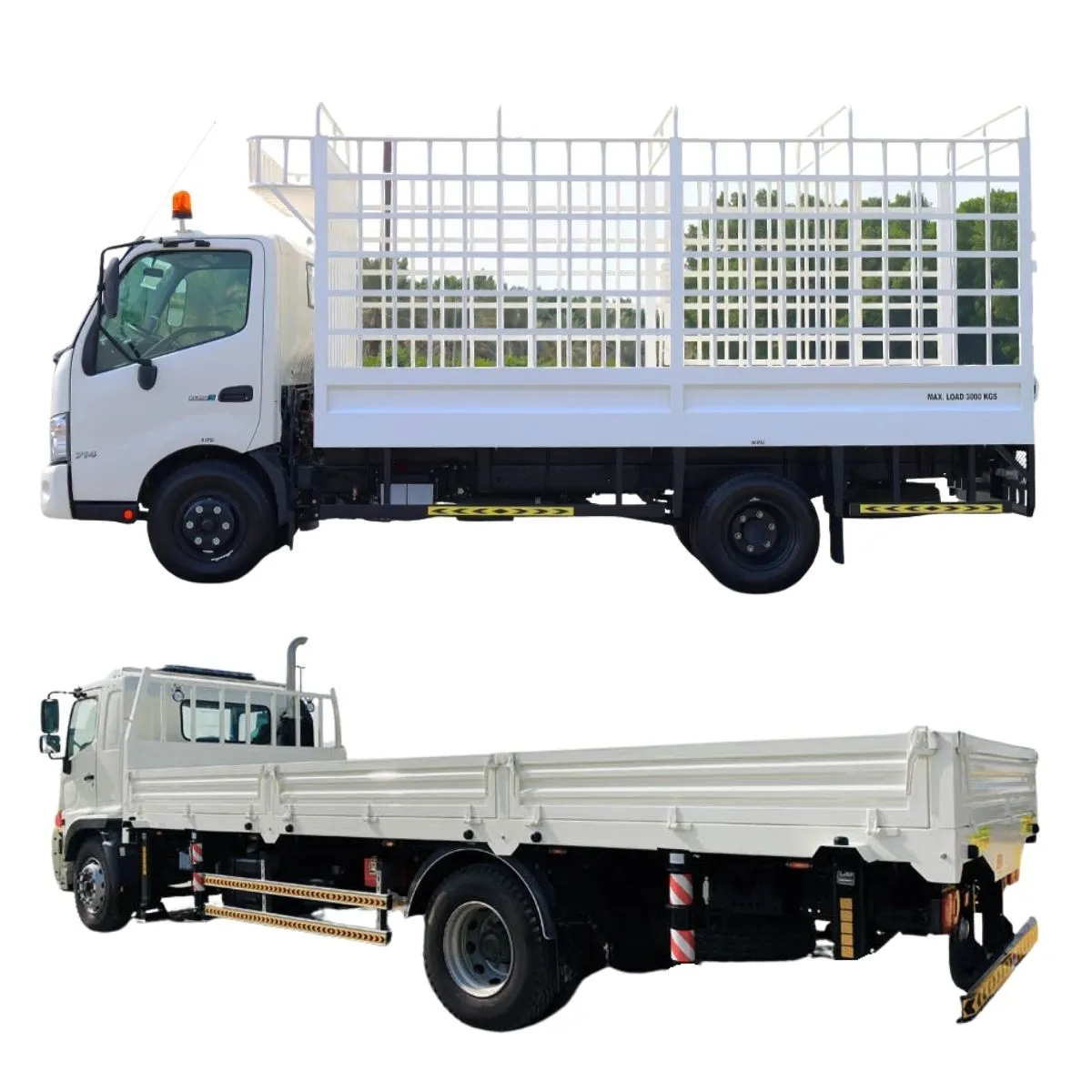Material Lifting Skip Bucket Fabrication
Dar Al Fann is a leading material skip bucket supplier in Dubai and the UAE, specializing in material lifting buckets for construction, demolition, and industrial projects. Our material skip buckets are precision-fabricated from high-grade, heavy-duty steel, reinforced for maximum strength, and designed to handle sand, gravel, debris, and bulk materials efficiently. Compatible with cranes, forklifts, and hoists, these material shifting buckets enhance safety and productivity on-site. Each bucket undergoes complete spark cleaning, followed by one coat of primer and one coat of epoxy painting to ensure durability and a long service life. Whether you need standard or custom-built buckets, Dar Al Fann delivers top-quality Material skip buckets across the UAE and GCC, making us one of the top suppliers of material and sand buckets in Dubai.
Manufacturer : Dar Al fann Steel Fabrication
Our Completed Projects
Material Skip Buckets | Material Lifting Buckets | Skip Bucket Supplier in Dubai & UAE
Dar Al Fann is a leading material bucket supplier in Dubai and across the UAE, specializing in high-quality material skip buckets and material lifting buckets for construction, demolition, industrial, and bulk material handling projects. Our skip buckets are precision-engineered to provide maximum efficiency, durability, and safety in handling heavy materials such as sand, gravel, debris, and other bulk loads. As a trusted skip bucket supplier in Dubai and UAE, we offer a range of standard and custom-built buckets to suit all project requirements, ensuring smooth operations and reliable performance.
What is Material Skip Buckets
Material skip buckets, also known as material lifting buckets, are heavy-duty containers designed to transport bulk materials safely and efficiently on construction sites, industrial projects, and demolition areas. These buckets are essential for handling sand, gravel, construction debris, and other heavy loads while reducing manual labor and improving workflow.
At Dar Al Fann, we design and fabricate material skip buckets using high-grade steel, reinforced with high-quality MIG welding for strength and longevity. Our buckets are compatible with cranes, forklifts, and hoists, providing versatile material handling solutions for all types of projects.
Key Features of Dar Al Fann Material Skip Buckets
- Heavy-duty steel construction using high-grade material for maximum durability and resistance to wear and tear.
- Reinforced design with high-quality MIG welding to withstand heavy loads and tough operational conditions.
- Efficient handling with compatibility for cranes, forklifts, and hoists, making material transportation faster and safer.
- Surface treatment including complete spark cleaning, one coat of primer, and one coat of epoxy painting for durability and long service life.
- Available in standard and custom sizes to suit different project requirements.
- Multi-application suitability for sand, gravel, construction debris, waste material, and bulk handling.
Applications of Material Skip Buckets
- Construction sites for transporting sand, gravel, cement, and debris efficiently.
- Industrial projects for safe movement of bulk materials in manufacturing and processing plants.
- Demolition work for collecting and transporting debris easily.
- Waste management for handling construction and industrial waste efficiently.
- Mining and quarrying for transporting stones, ores, and sand effectively.
Technical Specifications
Our material skip buckets and material lifting buckets are designed with attention to detail to ensure durability and reliability. They are made from high-grade steel, reinforced using high-quality MIG welding for maximum strength, and undergo spark cleaning followed by one coat of primer and one coat of epoxy painting. Standard and custom sizes are available to meet varying capacity and dimensional requirements.
Advantages of Using Dar Al Fann Material Skip Buckets
- High durability due to premium steel construction and MIG welding reinforcements.
- Enhanced operational efficiency with compatibility for cranes, forklifts, and hoists.
- Improved safety by reducing manual labor and handling heavy materials securely.
- Customizable design to meet unique project requirements.
- Reliable supply across the UAE and GCC countries.
- Cost-effective solution that reduces labor costs and increases project efficiency.
Manufacturing Process
Each material skip bucket undergoes a precise manufacturing process to ensure high quality and long-lasting performance. The fabrication process includes selection of high-grade steel, cutting and shaping, high-quality MIG welding for reinforcement, complete spark cleaning, and coating with one coat of primer and one coat of epoxy paint. All buckets undergo rigorous quality inspections before delivery, guaranteeing structural integrity and operational reliability.
Customization Options
Dar Al Fann offers extensive customization options for material skip buckets to meet specific project requirements. Customization options include tailored sizes and dimensions, reinforced edges for abrasive materials, specialized lifting points for cranes or hoists, and unique designs for industrial applications. This ensures seamless material handling and efficiency on every project.
Why Choose Dar Al Fann?
- Expertise in steel fabrication and manufacturing high-quality material skip buckets.
- Wide supply network delivering across the UAE and GCC countries.
- Durable and reliable buckets built for long-term performance.
- Comprehensive customer support from selection to after-sales service.
- Timely delivery ensuring project schedules are maintained.
Dar Al Fann is your trusted partner for high-quality material skip buckets and material lifting buckets in Dubai and the UAE. Designed for durability, safety, and operational efficiency, our buckets are perfect for construction, industrial, demolition, and bulk material handling projects. Whether you need standard or custom-built skip buckets, we provide reliable solutions all over the UAE and GCC countries, making us one of the top suppliers of material and sand buckets in Dubai. Contact Dar Al Fann today to get a quote for your material skip bucket requirements and ensure seamless material handling with durable, high-quality buckets.
Frequently Asked Questions (FAQs)
A material skip bucket is a heavy-duty container designed to transport bulk materials such as sand, gravel, debris, and construction waste. It is commonly used with cranes, forklifts, or hoists to improve efficiency and safety on construction, demolition, and industrial sites across Dubai, UAE, and GCC countries.
Material lifting buckets are designed to lift and transport bulk materials vertically or horizontally. They are compatible with cranes, forklifts, and hoists, allowing safe and efficient movement of materials on construction and industrial sites.
Skip buckets are built to handle a wide range of materials, including sand, gravel, construction debris, bulk waste, and other heavy materials. They are ideal for both industrial and construction projects.
You can buy high-quality material skip buckets from leading suppliers like Dar Al Fann, a trusted material bucket supplier in Dubai and across the UAE, offering standard and custom-built buckets for construction, demolition, and industrial projects.
Skip buckets are designed for general bulk materials including construction debris and gravel, whereas sand buckets are specifically designed to handle fine granular materials like sand efficiently. Both can be used with cranes, forklifts, or hoists.
Yes, skip buckets can be custom-built according to specific project requirements, including size, shape, lifting capacity, and special reinforcements to ensure efficiency and safety for material handling tasks.
Material skip buckets are fabricated using high-grade steel reinforced with high-quality MIG welding. They undergo complete spark cleaning, followed by one coat of primer and one coat of epoxy painting for durability and long service life.
Yes, both material skip buckets and material lifting buckets are designed for construction, industrial, demolition, and bulk material handling applications, making them ideal for heavy-duty projects across Dubai, UAE, and GCC countries.
The right bucket size depends on the type and volume of materials to be handled, lifting equipment compatibility, and operational requirements. Suppliers like Dar Al Fann provide guidance and custom options for optimal performance.
Dar Al Fann is one of the top skip bucket suppliers in Dubai and UAE, offering a wide range of high-quality material skip buckets, sand buckets, and material lifting buckets for construction, industrial, and demolition projects. We supply standard and custom-built buckets across the UAE and GCC countries.
